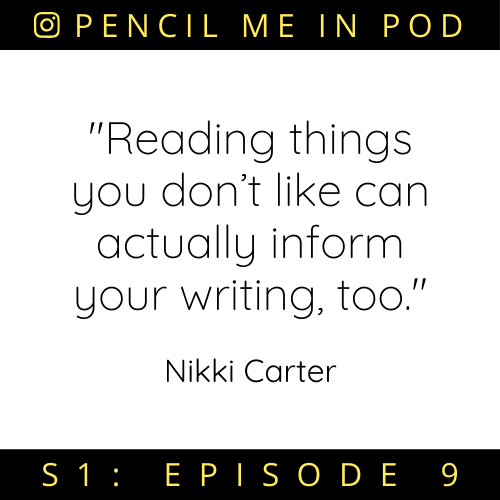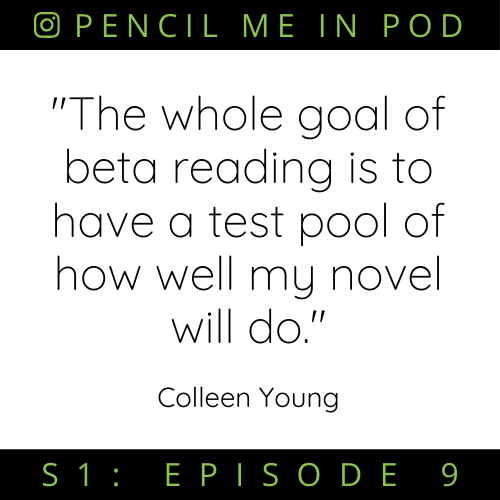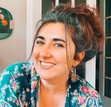Colleen Young's Blog, page 7
June 26, 2020
Have we met yet?
June 24, 2020
Fighting Prose Interview with Lora Douglas!
Welcome to my in-depth writers series Fighting Prose. Where I talk to authors in the industry on what their process is like and what it takes for them to keep on creating, through all the odds.
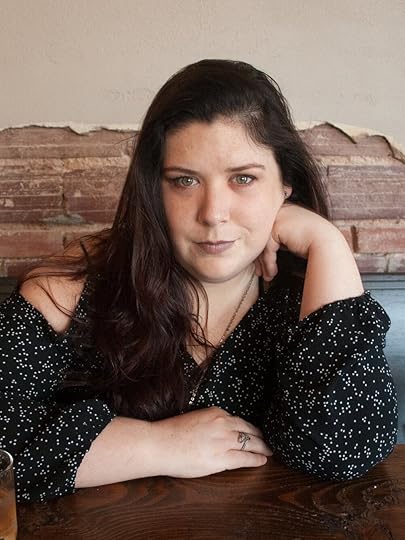
Lora Douglas
is my interview this week!
How long have you been writing?
If you’ve written several books, which is your favorite?I started my first novel in 2012 but I have been creating stories since I was a child
What's your favorite genre to read? Write?I currently have the first two novels in my trilogy completed and honestly, the second, Trapped in Eternity is my favorite of the two.
How do you get in the mood to write?I love reading horror/suspense and non fiction. I enjoying writing fantasy because I like to write real struggles/concepts with a twist of the fantastical.
How do your characters come together?I've learned that fear and pain are the enemy of my creative process. My body, soul and mind need to be healthy and excited. I have a couple chronic illnesses and I do my best to stay healthy so energy can used for creativity. When I sit down to write, I enjoy coffee or whisky, if the characters need some coaxing. I listen to music and prefer some nature nearby, normally via a window but houseplants work as well.
How do you get your ideas?My characters have a life all their own. For my current trilogy, the main characters came up in a dream and never left. Others arise as I am writing. None of my characters, in this trilogy or my other side projects, feel 'created'. It feels as if I have met them. None of my characters are based on people I know though some of them carry similar traits, morals, motivations, or philosophy, either through an intention tip of the hat to someone or unconscious association. The tip of the hat's are rare and typically stem from a strong relationship with that person or I have conversed with them for research purposes. My characters come from very diverse backgrounds and I strive to research and talk with/learn from people with similar backgrounds as I round out and develop the characters.
Who do you admire in the writing world?The idea for Ages from Eternity and the rest of the Trilogy came from a dream back in 2004-2006. I held on to it and over the years, it developed into the story I am writing now. Most of my ideas pop up as a scene or movie clip in my mind. If I am intrigued, I turn it over in my head and examine it, pulling at threads until a story develops.
If you're not busy writing, what are you busy doing?This is a hard one. I grew up reading Stephen King, Joseph Conrad, Mark Twain, Nancy Moser and random books that I would pluck from the library shelves. Now, being in the writing world, I meet authors on a regular basis that inspire me with their passion, creativity, gumption and drive. I guess, in the writing world, I admire the people that bleed onto the paper, that put their heart and soul into that vulnerable space and keep writing despite the fear, the judgement and the success statistics. I admire people that write about the hard stuff, that take the risks and tell their stories.
Have you always been creative?My day job takes a good deal of my time. I'm a social worker and I work in an administrative capacity for a non profit. I have a quirky, loving husband and two cats that have no idea they are animals. My 'free' time is littered with a rotation of hobbies and endeavors depending on my mindset and amount of said time. I enjoy running, dancing, photography, video games, D&D, hiking/being outdoors when able, watching documentaries and horror movies, reading and of course, writing.
Have you ever had writers block? If so, how did you get out of it?Yes. A thousand times, yes. Growing up, I had a severe respiratory condition that limited my ability to be active and I spent a great deal of time in the hospital. But, it never felt like a hindrance because my parents encouraged my creativity and even participated, with adorable hesitation on my father's part, in the telling of stories and reenacting of scenes and fairy tales. My father, following my innocent plea, began making up bedtime stories with me. My grandmother also indulged my love of make believe and would play with me almost daily. Most of my creativity and imagination focused around stories and I would act them out, on the regular, regardless if I had fellow actors or not. Other parts of my creative world sprinkled into a love a dancing and music, telling stories and conveying emotions with movement, and photography.
When you sit down to write, is it easy or hard? If it's hard, what makes you keep showing up?All the time. Sometimes, it is because I will not get out of my own way and I am forcing an idea or scene. Other times, it is because my energy has to be elsewhere or I am caught in that loop of fear and self doubt or that constructed cage of 'what ifs'. To get out of these blocks, I either do something active. I run with my writing playlists, or go for a walk/hike and just let my characters flow and breath. Sometimes, I need to call my editor or Alpha reader and talk through a section that is giving me fits. If I am forcing a scene and it is putting the breaks on everything, I flip the idea...maybe that thing doesn't happen or maybe she kicks instead of kisses, maybe they don't survive that encounter...and I let my mind fill in the gaps.
For a writer starting out what advice would you give them?It really depends on the day. Some days, the characters are vocal and the scene flows. Other days, most days, writing is difficult. I love the journey of writing and I struggle with focusing on the result. On days when my mind jumps to "what will the finish product look like?" or "How will people respond?" I am just asking for a block to come crashing down. When I focus too much on planning and plotting...it is hard to write because I am trying to stay in a line or in a box and that is not the best for my process. What keeps me showing up are the moments when my characters are free to be who they are and in turn, I am truly who I am. What keeps me showing up are the moments of glee, shock, elation, realization and pride when moments come together, when people grow and when scenes solidify into something lasting. Writing is therapeutic for me on a number of levels. It is my escape and the way I process the world. It is a way I communicate and a way that learn, so easy or hard...I'm not stopping because just like life, the journey takes all kinds of paths and even if they are rocky or smooth, they are still taking you where you need to go.
What is your dream writing location?Be critical of your writing but not cruel. Be compassionate to yourself and always strive to grow. Learn from others but don't compare. Tell your story, there is always someone who needs to hear it. Put in the work, learn from imperfections, accept the critique/opinions that you choose to agree with and keep writing.
In reference to your books, what question do you get asked the most?Either a cabin overlooking a river running through the mountains, or a coffee shop by the sea. Though honestly, I get the most writing done on long, solo road trips. My audio recorder is my best friend.
If you could bring one of your characters to life who would it be? Why?Where the idea came from? As I mentioned earlier, it came from a scene in a dream and grew up with me. The other questions I get frequently are about the Realm in general. The attributes about this space between the living world and Eternity are slowly explained through the trilogy but the reader is meant to have questions. I love hearing them. I enjoy listening as people process the concept and the ramifications. That is what it is meant to do. My characters have to figure things out and make their own decisions about the Realm and I wanted to create the opportunity for readers to do the same.
What do you think makes a good story?Oh goodness. One, they feel pretty real according to myself and my readers and two, having some of them be more real, would be hilarious and terrifying. If I chose one, it would probably be Eli from Trapped in Eternity (book 2) and for purely selfish reasons. He feels like the child I never had and it would be cool to hang out with him.
As a child, what did you want to do when you grew up?Personally, I would say depth. It is a personal preference. I enjoy deep characters with elaborate backstories, literary elements and things to learn and uncover. For me, reading is similar to writing, I want to think, grow, and feel. Take me on an adventure where afterwards, I'm not the same.
Links to LoraWebsite I Instagram I TwitterAn adult. For a little while, that was it. :) I wanted to see the world, experience difference cultures, create relationships with people and tell stories. When I entered school and learned that a job title needed to be assigned to my future goals and that a job that paid money was needed, I tried on photographer, missionary, community aid/development, animal physical therapist, photographer again, social worker, massage therapist...I am still figuring out what I want to be when I grow up. I think it will be a combination, as it is now. I want to pay my bills, take care of my family, be creative, see the world, love people, make a difference and live.
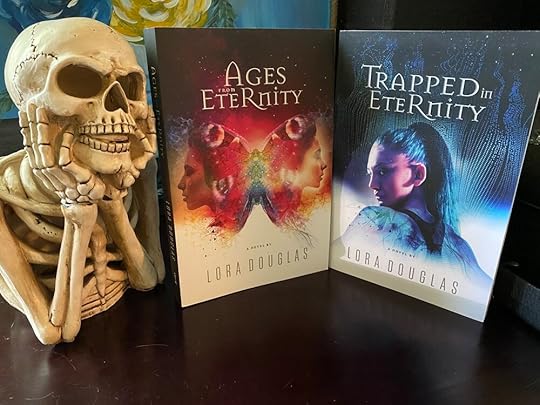
Ages from Eternity
By Douglas, Lora
Trapped in Eternity (Ages from Eternity Book 2)
By Douglas, Lora
Thank you for letting me interview you and Good Luck with everything Lora!
— Colleen
If you happen to know an author that would be great for my Fighting Prose series be sure to send them my way!
Thanks for reading!
XoXo- ColleenJune 18, 2020
The Life We Share is LIVE
I am so so so so so happy to have The Life We Share out for the world to read. It’s been a long hard road to get back to a place of producing material but I couldn’t be happier. Reviews are starting to come in and I’m so glad that each time I produce work it’s worthy enough for people to spend their precious time on.
If you’ve read it, let me know what you think!
Want a signed copy? or an ebook?
June 14, 2020
Fighting Prose Interview with E A Carter!
Welcome to my in-depth writers series Fighting Prose. Where I talk to authors in the industry on what their process is like and what it takes for them to keep on creating, through all the odds.
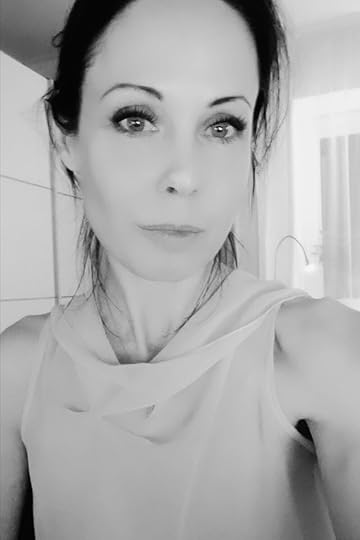
E A Carter
is my interview this week!
How long have you been writing?
If you’ve written several books, which is your favorite?Since I could put crayon to paper
What's your favorite genre to read? Write?The Rise of the Goddess
How do you get in the mood to write?Mashups of scifi, high-fantasy, and historical fiction, which is...surprise...what I write!!
How do your characters come together?Music, film, dreams, walks, thoughts, it's constant....the need to release the stories that pile up inside me...
How do you get your ideas?It's a funny thing, but they sort of fit together on their own. I can dream of them, or 'see' them in my mind, they are just there, really I just feel like a transcriber sometimes....maybe I am...
Who do you admire in the writing world?Reading science articles on quantum physics has a big impact on my imagination. Dreams. Smart sci-fi concepts. Driving and imagining complex love affairs that cross time and space...'normal' things like that
If you're not busy writing, what are you busy doing?Carl Sagan for his inspiring words. Donna Tartt for the sheer perfection of her work.
Have you always been creative?Reading, learning, absorbing information, thinking, occasionally washing the dishes...
Have you ever had writers block? If so, how did you get out of it?Yes. Always writing, although for a time I did a lot of drawing. I liked to draw horses, and powerful warrior women.
When you sit down to write, is it easy or hard? If it's hard, what makes you keep showing up?Yes, of course! I just let myself be, like having the hiccups, the less your dwell on it the faster it goes away. Usually watching a really powerful film kick-starts the juices again (Collateral Beauty is my go-to when I am really stuck).
For a writer starting out what advice would you give them?It depends on my personal life at the time. If things are hard, it's hard, and I fight not only with the words, but with doubt, fear, and feelings of inadequacy. What makes me keep showing up is the story is desperate to get out. It's like a pressure inside me, so even if it's hard to go on, it's worse to keep it inside.
Some scenes are easier to write than others, but in general, I am a slow writer so it's a case of grit and determination and never, ever giving up...in the end it's worth it. When I look at the finished product and see how smooth it reads, it looks so easy, but trust me, it wasn't. It was hard. Really hard.
What is your dream writing location?Believe in your stories. Listen to your characters, don't control them. Set them free. The story will follow.
In reference to your books, what question do you get asked the most?Somewhere Nordic, quiet, and remote, with a turbulent sky, the wind in the pines, and my cats around me.
If you could bring one of your characters to life who would it be? Why?How do you come up with these stories?!?!?11!!?
What do you think makes a good story?Marduk. 100%. He is sexy, dark, intense, troubled, yet aching to do right. I love him.
As a child, what did you want to do when you grew up?A compelling, powerful love story. One that *could* happen, but hasn't yet....
Links to E A CarterWebsite I Instagram I TwitterI wanted to be a model...I actually went to modelling school!!
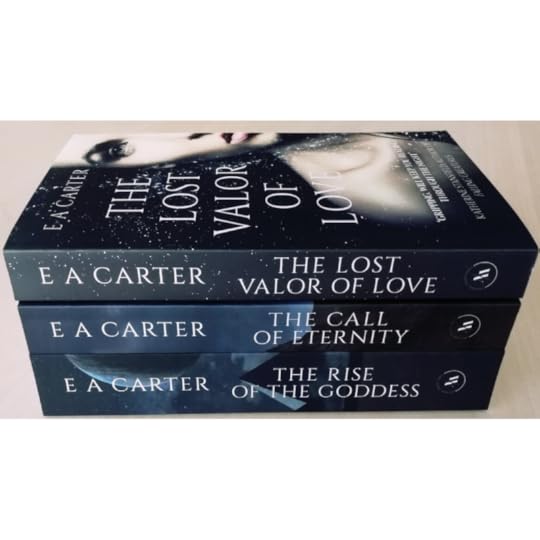
The Transcendence Series: The Lost Valor of Love, The Call of Eternity, The Rise of the Goddess
By Carter, E A
Thank you for letting me interview you and Good Luck with everything E A!
— Colleen
If you happen to know an author that would be great for my Fighting Prose series be sure to send them my way!
Thanks for reading!
XoXo- ColleenJune 10, 2020
Blast Through Writing Excuses
June 8, 2020
Fighting Prose Interview with Erna Grcic!
Welcome to my in-depth writers series Fighting Prose. Where I talk to authors in the industry on what their process is like and what it takes for them to keep on creating, through all the odds.
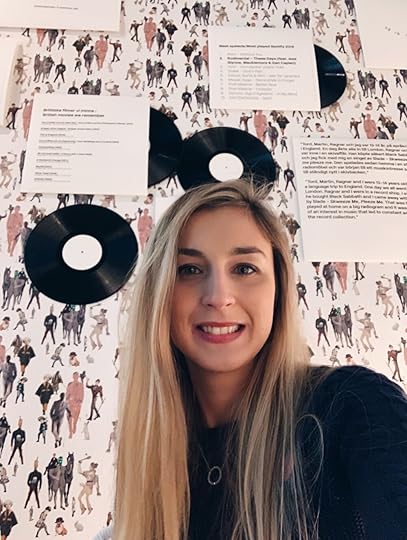
Erna Grcic
is my interview this week!
How long have you been writing?
If you’ve written several books, which is your favorite?I got a diary in the first grade, which I first used to practice writing, and then continued keeping a meticulous account of my not really eventful childhood. Although it's questionable how much literary merit these elementary school memoirs have, I think this is when my writing journey actually began. It is how I developed a need to express myself on paper and I grew more skilled and creative with time. In middle school some of my poems and short stories ended up in the school papers, and that is the pattern that kind of continued throughout my life. I wrote and actively published in several magazines and anthologies, including the Three Drops Press. However, only recently have I decided to compile my poetry into a book, and that is how Beneath the Surface came into being.
What's your favorite genre to read? Write?Beneath the Surface is my recently published collection of poems and it's currently my favourite book. I am actively working on a fantasy novel titled The Hatching, which should be out by 2021.
How do you get in the mood to write?I enjoy reading works of fantasy, such as books by Neil Gaiman or Terry Pratchett, and I love literary fiction, especially women writers such as Zadie Smith and Kate Atkinson. When it comes to writing, my favourite genre is definitely fantasy. There is nothing comparable to the pleasure of building a world and populating it with characters, and you can go as far as your imagination allows you. I had bucketfuls of fun creating the fictional cities of Rodgrad, Vesnik, Dazhnia, and Karzel for The Hatching.
How do your characters come together?I am blessed with a very good power of concentration. I can write almost anywhere - on a plane surrounded by screaming children, in a doctor's waiting room, in the middle of a bustling staffroom (actually that's where I wrote several of my poems including 'Jaded' and 'Ennui'). However, during those sluggish days when I do need to set the mood for writing, I try to minimise distractions, mute all notifications, and put on my noise-cancelling headphones.
How do you get your ideas?I start with an idea of what kind of a character I need and what her or his purpose would be within the storyline, whether she helps convey the theme, or she functions as a trigger for a certain event. I love writing characters' back stories, tracing the events that have shaped and moulded them. I make sure that they have flaws that will land them in trouble, and I give them some habits and quirks that distinguish them from the rest. It is important to know one's characters well in order to be able to write them realistically into all kinds of situations. Some of these minor details might seem insignificant - for example that a character runs her fingers through her hair when she's nervous - yet it is these details that give life to characters.
Who do you admire in the writing world?Sometimes, especially for poetry, the best ideas come from observing the world and the people around me. Poetry is about transmitting powerful images, sharing important messages and emotions, and that takes a keen and observant eye. I like to give these mundane situations a fantastical twist, a yellowish eye that glints in the depth of the murky waters. This is how Beneath the Surface is constructed – as a blend of the seemingly ordinary and the fantastical. I also read a lot of mythology and I often draw from or make references to myths. Beneath the Surface revolves around the image of the Kraken with its powerful tentacles, the poem ‘Ragnarok’ is inspired by the Norse myth about the end of the world, and the novel-in-progress, The Hatching, draws heavily from Slavic mythology. I focused on Slavic mythology because of my own background, and also because I feel that it is a well of wonderful and dark stories that has not been explored enough.
If you're not busy writing, what are you busy doing?A writer I truly admire is definitely Neil Gaiman. He is such a versatile writing genius - from his graphic novel The Sandman, to his children’s works such as The Graveyard Book and Coraline, to his epic American Gods - his writing is so educational, inspirational, relevant, and entertaining at the same time. He blurs the lines of reality and writes the truth into his works. At the same time, as we have had the chance to see recently during the coronavirus epidemic, he is also a very grounded, socially involved, and generous person.
Have you always been creative?I am a high school English teacher and I spend a lot of time planning lessons and researching effective strategies to teach reading. I participate in conferences and I've already published a couple of academic papers that deal with literature and applied linguistics.
Have you ever had writers block? If so, how did you get out of it?I have always felt a need to create and to express myself. Writing has always been there, I can't really remember the time when I didn't write in one form or another. It has chosen me and I think it's a relationship that's going to last for a lifetime. In addition to writing, I went through a number of creative phases, from painting, which wasn't really my thing but I persevered, to making jewelry, which was very satisfying and therapeutic and all my friends got their hand-made birthday gifts, to playing the guitar and taking photographs, which I am still quite passionate about.
When you sit down to write, is it easy or hard? If it's hard, what makes you keep showing up?Yes, I had severe writer's block after my father had passed. It lasted for almost half a year, and although many people find solace in writing in these situations, I didn't. I had several projects that had reached a complete standstill at the time, so I did the only thing that I knew would give me a jolt in the right direction: I entered a national writing competition. All of a sudden I had deadlines, loads of deadlines. I wrote around 30,000 words in a matter of weeks. I didn't win, but it gave me a really good kickstart that has lasted until now.
For a writer starting out what advice would you give them?The first five to ten minutes are always hard, until I get sucked in. In my case, it's an experience similar to reading, I write stories and poems that I would like to read, they reel me in, I become curious about what could happen next and where it could lead us - that is when ideas start flowing. It's not always smooth sailing though. There are days when it seems that nothing works and everything is horrible and needs to be erased. This is the moment when I take some time and distance myself from the project until I gain a clearer perspective, before making any rash decisions. I keep returning because it is not even a matter of choice anymore, it's the force of habit and my main way to give meaning to the world.
What is your dream writing location?Perseverance and dedication are an absolute necessity every step of the way. From writing a book, to getting it published, to getting people to actually read it, and then even when one gets a breakthrough, it definitely takes a lot of willpower to keep working, to start new projects, to nurture and shelter one's creative space from the helter-skelter everyday life. Whichever path you choose, whether as an independent author or as a traditionally published one, you will need to develop a thick layer of skin. It takes courage, strength, and persistence to get anywhere.
In reference to your books, what question do you get asked the most?A hobbit hole. It's absolutely perfect: warm, cozy, underground but not in a gloomy way - as Tolkien himself says, it's the ultimate idea of comfort. It has all sorts of odds and ends to keep oneself entertained and an inexhaustible pantry. What more could one want?
If you could bring one of your characters to life who would it be? Why?In addition to the usual question about inspiration and finding time to write, I find it interesting when people ask me why I write poetry - it's not as fun as fiction, it doesn't sell well, and sometimes it's hard to understand. I believe that poetry has the power to transmit emotions and ideas within a very condensed form. Both reading and writing poetry is an intellectual game, like solving an intricate riddle woven out of images and figures of speech. And also, it's currently getting massively popularised by the new generation of poets, who are adapting the form to suit the present-day readers.
What do you think makes a good story?A character I would like to see come to life is Tierney from The Hatching. She is not the protagonist, but she is definitely my favourite character. She is a Hermione-like know-it-all from Karzel, a city ruled by a dwarf god of mines and gold, and she wields a mean battle axe. After the city gets conquered by the Rodgradians (a neighbouring kingdom) she needs to organise the resistance and inspire her people to fight for their freedom. She is blend of a knowledgeable and inspirational mind and the spirit of a warrior, with one significant flaw which I'll leave to be discovered in the pages of The Hatching.
As a child, what did you want to do when you grew up?I think a good story needs to have a universal theme that speaks to the readers across time and space and enables them to empathise with the characters and their problems so as to learn a lesson and reach a catharsis. A good example of such writing are the classics. We keep going back to Jane Austen, Emily Bronte, Charles Dickens, Louisa May Alcott, we keep rereading and reviving their works in the form of movies and TV shows because they still speak to us and they still have the power to move and touch us.
Links to Erna Website I Instagram I FacebookAs a child I always dreamed of becoming a vet. I have always loved animals, we've always had pets, and the study of language and literature was unimaginable for me at the time. However, we grow and change, and certain things crystallise and assume their proper shape. At some point my love of books got the better of me, but I still love and care deeply for animals, as my wonderful cat Henry can confirm.
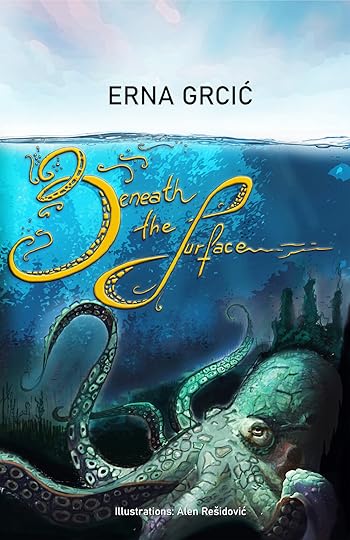
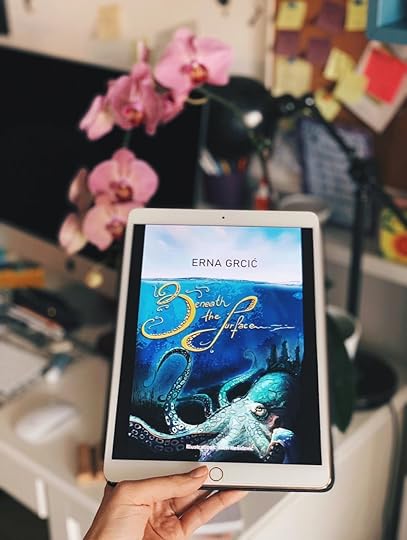
Beneath the Surface
By Grcic, Erna
Thank you for letting me interview you and Good Luck with everything Erna!
— Colleen
If you happen to know an author that would be great for my Fighting Prose series be sure to send them my way!
Thanks for reading!
XoXo- ColleenMay 31, 2020
Fighting Prose Interview with Felicia Blaedel!
Welcome to my in-depth writers series Fighting Prose. Where I talk to authors in the industry on what their process is like and what it takes for them to keep on creating, through all the odds.
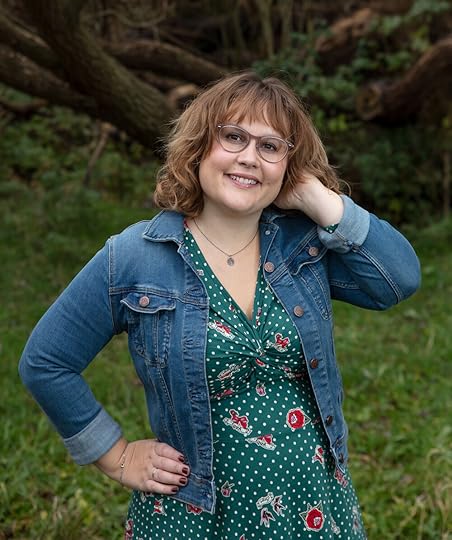
Felicia Blaedel
is my interview this week!
How long have you been writing?
If you’ve written several books, which is your favorite?When I was a child, I wrote short stories all the time, but I stopped as a teenager and then I didn't pick it up again until 2016, where I started writing as a way to cope with a difficult time in my life. Chasing Pebbles is my debut novel and the first book I've written in English, but I've written another novel in Danish.
I stopped writing when school and jobs took over my time, and I believed I wasn't talented enough to pursue a career in writing. When I started writing again, it was just for me. I made a note with rules like, e.g. "I can write stories that are close to reality or far from it" or "I can write even though I suck at grammar" etc. My rules helped me get over my fears, and I found my desire to write again, something I thought I'd lost for good. As I started identifying with being a writer and prioritizing my writing, I felt so much freer and at peace.
What's your favorite genre to read? Write?I think Chasing Pebbles is my favourite and it's also the one I've pursued publishing. I love my main characters Oliver and Frida. I think they are real and flawed, and their love is authentic and messy. I wanted to write a romance that makes you feel, think, swoon and smile, but in a way that's still realistic. I wanted to tell the story of a heroine with simple dreams and a big heart and a nerdy, underdog hero.
I have two book projects in Danish, one finished (a young adult romance) and one that's about 50 per cent done (an ff new adult romance). Even though I don't think I'll resume working on them, writing these stories meant a lot to me. The novel I finished in Danish has a heroine with high functioning anxiety like myself, and it was incredibly healing to write her story.
Right now, I'm working on book two in my series Without Filter, where Oliver's sister is one of the main characters, and I already have a feeling that this story will be special to me.
How do you get in the mood to write?My favourite genres to read is romance, new adult and young adult. So far, my favourite genre to write has been new adult romance. I find it fascinating to write about that phase where you're technically an adult, but you are still figuring out where you belong and who you really are.
How do your characters come together?Sometimes it easy, like when I have a clear idea of the story and my characters are alive in my mind and constantly chatting, not even letting me shower in peace. Other times it's harder. I assign myself time to write, so I don't feel guilty for not doing something practical instead. If I'm stuck, I do writing sprints as it helps me focus when I'm anxious or overwhelmed.
How do you get your ideas?Usually, I start by having a vague idea that slowly becomes more real. When I have an overall idea of the type of character I'm writing, I do different things to develop them. I interview my characters, and I write several pages of their everyday life. One thing is giving them a great backstory, but I also learn so much about my characters by taking them grocery shopping or making them tell me about their day at work. I also do Pinterest boards, and I draw them (I'm really bad at drawing), but it's not so much about the visualization itself. It's more about spending focused time thinking about the characters without expecting anything from them.
Who do you admire in the writing world?I have no idea. I honestly don't. I get ideas for characters way before I get ideas for plots. I start writing when I have the characters down. When I have decided the overall feelings and motivations as well as a vague idea of the plot, that also means I rewrite a lot in the beginning, but it works better for me than to plot out scenes far in advance.
If you're not busy writing, what are you busy doing?That's such a hard question. I admire imaginative authors. I admire J.K Rowling, C.S Lewis, Astrid Lindgren and Tove Jansson for their world-building. If I look at authors within contemporary romance, I would say Penny Reid. I think she writes exceptional stories that are funny, clever and full of heart. I also think Sarina Bowen is very talented. Her stories are so well-paced and flow perfectly.
Have you always been creative?These days I'm busy chasing after my toddler. I love reading and I never leave my house without my kindle. I enjoy being outside and going for walks in nature. I dance, mostly at home or the gym. For the most part, I like cooking, and I always want to travel. I love being around friends as family, as long as I have enough alone time to re-charge afterwards.
Have you ever had writers block? If so, how did you get out of it?Yes, I believe so... As a child, I wrote stories and painted. Growing older, I stopped doing things I didn't think were useful or worth my time, and for a long time, I convinced myself that I wasn't creative.
From the moment I moved away from home I cooked a lot though, and I've been making my own recipes ever since, so even when I wasn't writing, I was creative in other ways.
When you sit down to write, is it easy or hard? If it's hard, what makes you keep showing up?I've only had severely writers-block when I was pregnant. I had a difficult pregnancy, and I was sick for most of it, but still going to work, so I think it had to do with me being completely exhausted. When I experience minor writers-block I can solve it by doing writing sprints or taking a break.
For a writer starting out what advice would you give them?I think most days are somewhere in between. But the reason I keep going on the days that are hard and where it feels like a struggle is that I'm happier when I write. I'm highly sensitive and I have anxiety, and writing is my outlet. It's a way to process all of the extra emotions. It's healing. And I don't know how to explain it, but when I decided that I was going to publish a book and when I started calling myself an author, something inside me clicked into place. It felt right.
What is your dream writing location?Start by writing for you, don't worry what the world will think, don't worry about your community, your family or your friends. Write for you.
Once you are ready to share your writing, figure out what your strengths are and where you need help. I'm writing in my second language, and I've never been good at grammar. If I'm going to be a writer, it's essential that I don't feel bad about those shortcomings, but that I hire someone to help me fix my grammatical mess, so my story gets to shine.
In reference to your books, what question do you get asked the most?I don't think I have one. I like the idea of writing in a coffee shop buzzing with energy and inspiration, but I prefer to write at home. I want to decorate our home office/guestroom and make it more cozy and creative, though.
If you could bring one of your characters to life who would it be? Why?Since Chasing Pebbles is my debut novel, I mostly get asked what it's about.
What do you think makes a good story?That is a hard question. I love both Frida and Oliver, and I don't think I could choose. Oliver because he's such a genuine person and a different type of romance hero. He's nerdy and awkward, but successful and confident in other areas of his life. He's funny, odd, he rambles and he knows something about everything. He is not your typical alpha hero, but he'll still make you swoon. Frida because she's loyal, fun and emphatic. She's creative, a tad dramatic and she's a mixture of a tomboy and a girlie-girl. Life has knocked her down a bit, but she's resilient. She's caring and compassionate and her dreams are simple, but at the same time she's strong and brave.
As a child, what did you want to do when you grew up?A good story is a story I get lost in, where I just want to keep reading, but I also don't want it to end. A good story doesn't only make me feel; it makes me think. It's a story where I relate to the characters and their struggles, where I want to cheer on them as well as grieve with them.
Links to FeliciaWebsite I Instagram I FacebookOther than a writer, I wanted to be an archaeologist.
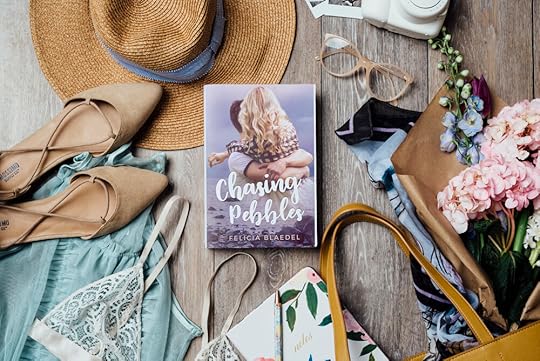
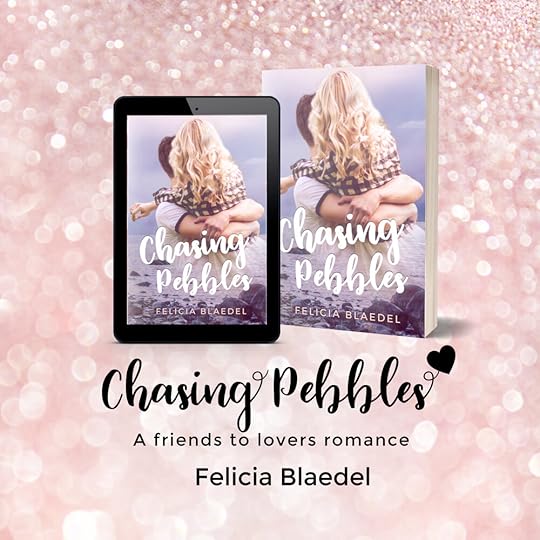
Chasing Pebbles: A friends to lovers romance
By Blaedel, Felicia
Thank you for letting me interview you and Good Luck with everything Felicia!
— Colleen
If you happen to know an author that would be great for my Fighting Prose series be sure to send them my way!
Thanks for reading!
XoXo- ColleenMay 29, 2020
The Life We Share Cover Reveal!!
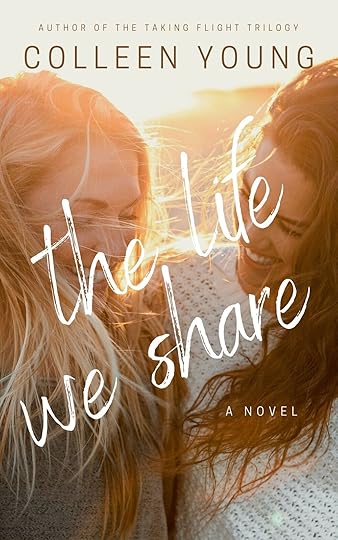
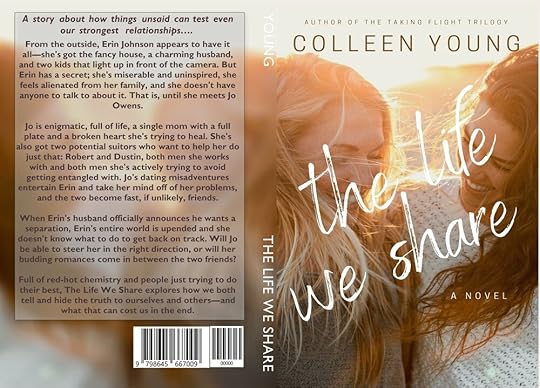
May 22, 2020
Fighting Prose Interview with J.A. Plosker!
Welcome to my in-depth writers series Fighting Prose. Where I talk to authors in the industry on what their process is like and what it takes for them to keep on creating, through all the odds.
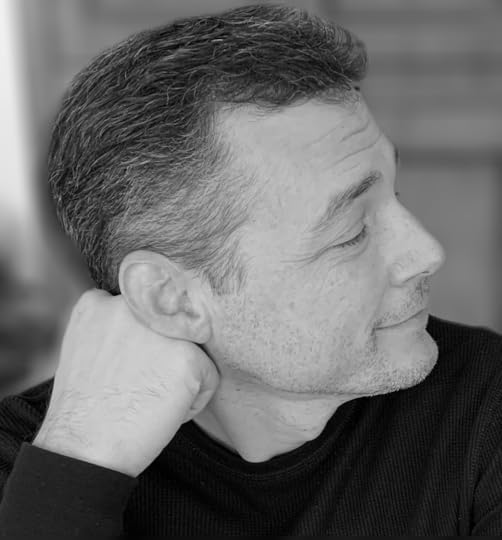
J.A. Plosker
is my interview this week!
How long have you been writing?
If you’ve written several books, which is your favorite?I’ve loved words since I could hold a pen! I’ve written stories my whole life, and it’s just part of who I am.
What's your favorite genre to read? Write?I have one non-fiction and one fiction, and they’re so different! They both share ideas that are very close to my heart, but they do it in two entirely different ways. I enjoyed writing them both. The Nobody Bible is an homage to my years-long passion for studying world traditions and ancient wisdom, and An Audible Silence reflects the power of mindfulness, meditation, and open, honest conversation, and how they can change our lives. I can’t choose!
How do you get in the mood to write?I love books about personal growth, philosophy, and ancient wisdom. It’s such a vast area of the creative and personal life.
How do your characters come together?In a busy life, sometimes getting in the mood to write isn’t an option. Sometimes writing has to get done when the house is quiet. At that point, mood gives way to scheduling, and I ask the muses to pencil me in!
How do you get your ideas?Characters just show up! I’ll be mulling an idea, and out of nowhere, a persona steps in and takes ownership. After that, it’s a creative collaboration between us!
Who do you admire in the writing world?It all starts with a blend of imagination and the world around me. I have some people in my life I like to run my ideas past, and it all just builds and builds until a coherent story world emerges. I think the most important part of the idea process is being open to change. Getting stories into print isn’t a straight line, but a curving, winding road filled with surprises and detours. Flowing with change is key to accessing parts of our mind where we can mine some of the most valuable nuggets for writing.
If you're not busy writing, what are you busy doing?There have been so many authors over the years whose books I’ve loved. I think those I admire most are those who put their personal stories out there. It’s never easy putting our ideas into the world, but when they are so personal and real, it’s as if we’re standing right there with the stories.
Have you always been creative?Spending time with my family is something I love, so that’s a main focus when I’m not writing. I also spend my time podcasting, creating videos, speaking, and working on projects that are outgrowths of my books.
Have you ever had writers block? If so, how did you get out of it?I’ve always loved creating things. Whether building with blocks or playing music, being creative is something I enjoy. But for many years now, my primary outlet has been writing and storytelling.
When you sit down to write, is it easy or hard? If it's hard, what makes you keep showing up?I have that occasional frustration of watching the cursor blink and blink on a blank page. I also write for my job, so when that happens, I really can’t say, “I’m not in the mood today!” I get out of it by forcing my fingers to type. I put down an idea – any idea – just to get my brain firing and the blood flowing to my fingers.
For a writer starting out what advice would you give them?Sometimes the words flow easily, and sometimes, it's really hard. When it's difficult, I remind myself that writing is a process, and each session doesn't have to be perfect.
What is your dream writing location?My first piece of advice is to test outside advice against your own intuition. Everyone has an opinion on something in the book world, but in the end, you have to do what feels right for your story. The second, and related, piece of advice is to remember that the writing journey is your journey. Put your story first. Put your message first.
In reference to your books, what question do you get asked the most?I’d love to have a room with a big window that looks out over the mountains and nature. But honestly, anywhere quiet to write is a dream!
If you could bring one of your characters to life who would it be? Why?Why do you write what you write?
What do you think makes a good story?I’d love to meet Professor Arjun Singh from An Audible Silence. He’s a humble man of great stature, and the embodiment of a true friend and mentor. If we’re lucky, we meet a person whose simple presence can change our day, or our life, and Professor Singh symbolizes that.
As a child, what did you want to do when you grew up?When characters have dialogue that feels real and authentic, it draws me in. I get immersed in their world because they are immersed in it.
Links to J.A.Website I InstagramIt changed every day!
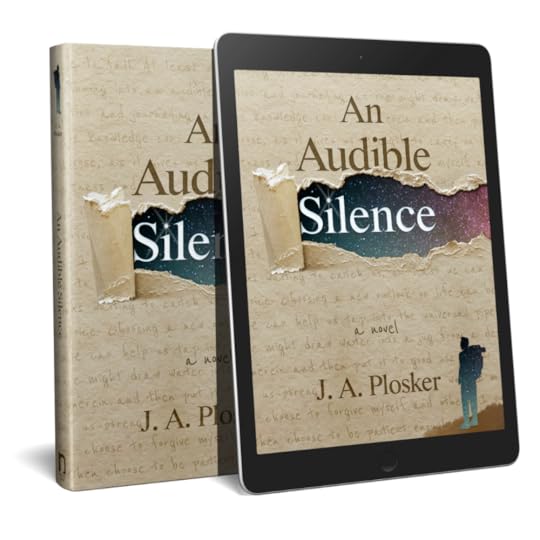
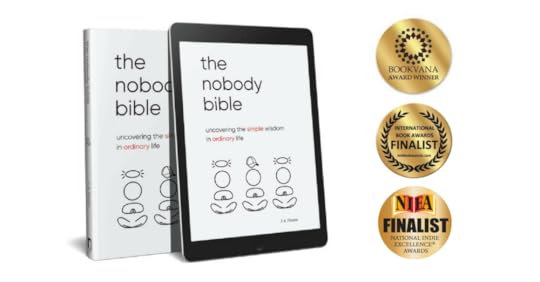
An Audible Silence
By Plosker, J. A.
The Nobody Bible: Uncovering the Simple Wisdom in Ordinary Life
By Plosker, J. A.
Thank you for letting me interview you and Good Luck with everything J.A.!
— Colleen
If you happen to know an author that would be great for my Fighting Prose series be sure to send them my way!
Thanks for reading!
XoXo- ColleenMay 20, 2020
The One Where I Get Spicy...
The one where Colleen gets spicy....
Colleen's right in the middle of incorporating input from her beta readers for her latest book, The Life We Share, so we thought we'd do a deep dive into what beta readers are and how to be a good one, or how to find one for your book. Tune in for some great tips, including how to incorporate feedback from various people and how to handle manuscript swaps with fellow authors with poise.
PS: If you're interested in building a website, check out Bluehost—if you use this link, you get a special intro offer, 30-day money back offer, FREE domain name for the first year, special pricing, and more! This is what Nikki uses to host her website :)
PPS: If you want to get in on our July book club, read Red, White & Royal Blue or Untamed (or BOTH!) and email/message us to discuss/send us questions!
